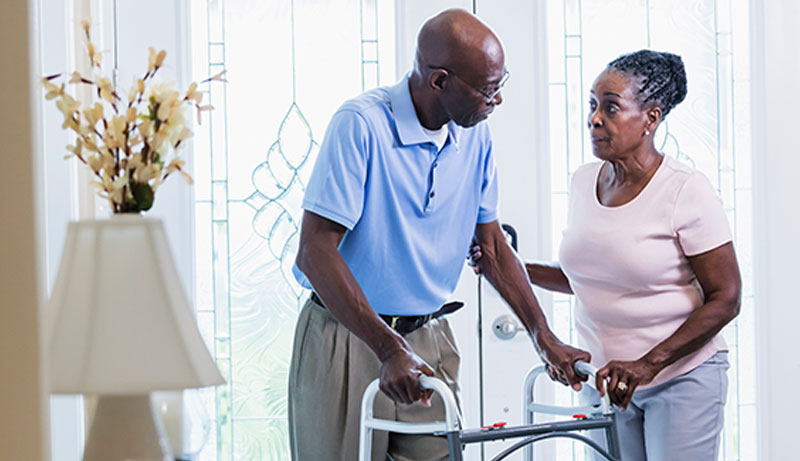
Learn how to navigate the ups and downs of caring for a loved one in the later stages of Parkinson’s.
A Parkinson’s disease diagnosis impacts family members in addition to the person with the illness. Learning about what to expect as the disease becomes progresses is key to being prepared for the changes to come and to making life the very best it can be every single day.
Over the past couple of months, we’ve shared information about what to expect in in the early and middle stages of Parkinson’s disease. Blog posts have included what family members can do to best help a loved one with Parkinson’s, and how Compassionate Nursing Services, often considered the best St. Louis home care agency, can help. In this closing segment in the series, we provide information to help with caring for a loved one in the late stages of the disease.
Later Stage Parkinson’s
In the late stages of Parkinson’s disease, a substantial degree of assistance is needed with regular activities of daily living. By definition, the final stages of Parkinson’s are noted by the person’s inability to live independently. Initially, walking and standing might remain possible, however with marked struggle, and as the illness continues to advance, the person will not be able to get out of bed or a chair unassisted.
In addition to a greater risk for falls, hallucinations and delusions can also be common. As a result, full-time, around-the-clock assistance is essential to ensure safety.
The Impact of Late Stage Parkinson’s on Family Caregivers
At this point, the stress and daily requirements of caregiving may take a toll on a caregiver’s own health. It is vitally important for family care providers to reach out and accept help, to stay socially connected, and to make respite care a high priority. It is simply not practical for one person exclusively to manage the around-the-clock care needed for a person in late stage Parkinson’s.
How Care Providers Can Assist with Late Stage Parkinson’s Care
With added hands-on care required, it is essential for caregivers to learn how to properly and efficiently provide this support to lower the chance of harming either themselves or the person being taken care of.
If an individual in the later stages of Parkinson’s isn’t currently receiving physical therapy services, ask the doctor for a referral. The physical therapist, while helping improve the person’s ability level, may also advise family caregivers on the best techniques for hands-on assistance.
One new symptom that frequently arises in the later stages of Parkinson’s is freezing, when the person is abruptly (but temporarily) not able to move. Techniques to help break a freezing episode include:
- Using a laser pointer and asking the person to step over the light
- Using a rhythmic noise, such as clapping, and encouraging the person to take a step with every clap
- Playing music and prompting the individual to walk to the beat
As always, remain close by when the individual is mobile to avoid a fall.
Make sure to provide lots of extra time for day-to-day activities such as getting dressed and eating, which are likely to take longer now. This is important in protecting the person’s self-sufficiency. Even if it takes longer to accomplish an activity, it’s always better to foster as much self-reliance as possible.
Emotional and mental health worries also may surface now, including anxiety, depression, memory problems, and dementia. These health conditions can be hugely daunting for a family care provider to manage and should be brought to the attention of a loved one’s physician.
Compassionate Nursing Services’ professional caregiving team is here to help you and the one you love through each stage of Parkinson’s. Particularly in these final stages of the illness, having a care partner you can trust and depend on is crucial.
Get in touch with us at 314-432-4312 for a complimentary in-home assessment to learn more about our caregiving services and ways in which we can ease the transitions through Parkinson’s for both you and the older adult you love. For a full list of the communities we serve, visit our Service Area page.
